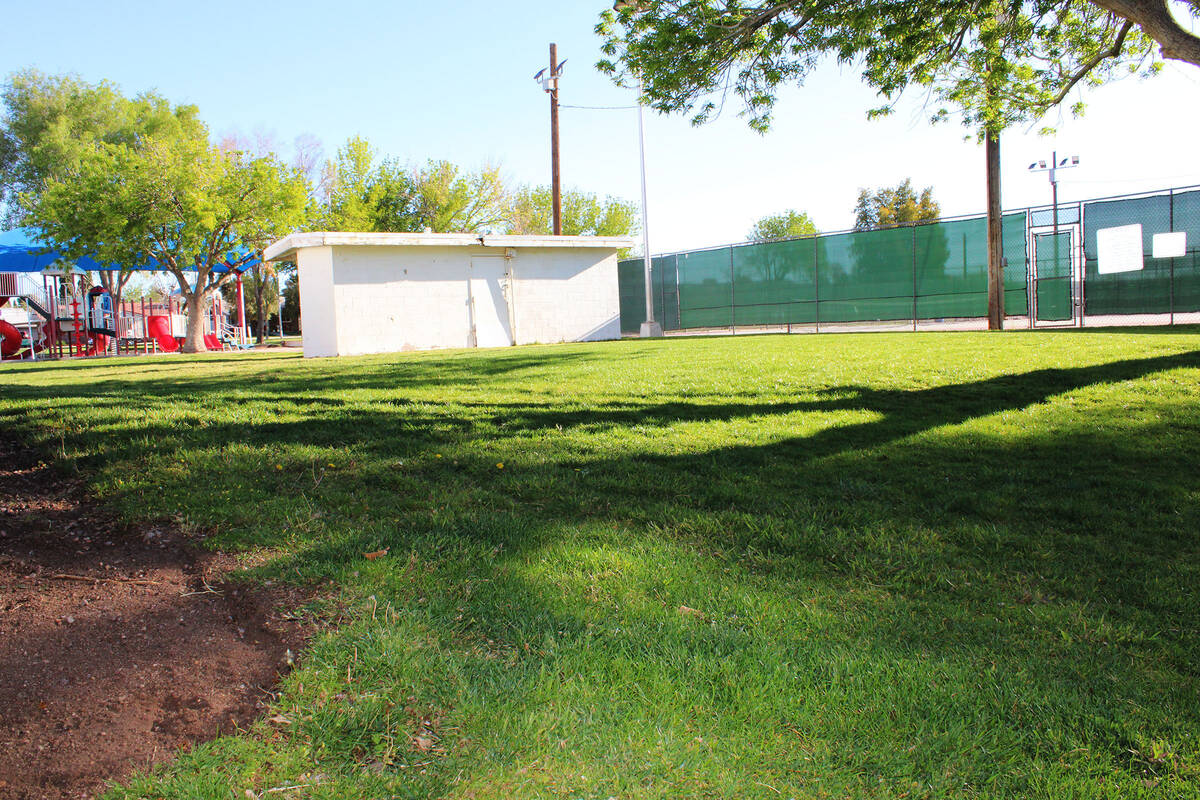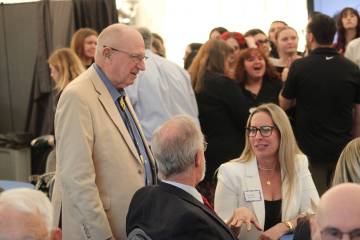Nonfunctional turf to be cut
Yes, the word “green” is right there in the motto of Boulder City. But, due to changes in state law, some public spaces around town will soon sport desert landscaping rather than turf that needs to be irrigated.
In a presentation to the council, Utilities Director Joseph Stubitz noted that, in addition to bringing Boulder City into compliance with AB356, the removal would save approximately 50 million gallons of water each year.
“While we have had a wet year so far with rain totals at about 130 percent of average, we have been told that it would take several years with this kind of rainfall to make up for the current conditions at Lake Mead,” Stubitz said.
In 2021, the Nevada Legislature passed AB356, which was later signed by then-governor Steve Sisolak. The law mandates that all nonfunctional turf in Southern Nevada has to be removed no later than the end of 2026. Starting in 2027, it will be illegal to use Colorado River water to irrigate grass designated as nonfunctional.
The definition of nonfunctional refers largely to grass lining streets and sidewalks and decorative turf around buildings that are not designated as single-family homes.
Most of the turf that has to be removed in Boulder City is deemed non-functional due to setback and drainage issues.
In order to be considered functional, regardless of use, irrigated grass has to be located at least 10 feet away from a street and at a slope of less than 25 percent.
This 10-foot setback requirement is what is driving the removal of grass along the street at several parks, including Bicentennial Park, Frank Crowe Park, and Oasis Park.
Other areas such as the area between the Aquatic Center and the tennis courts at that combined facility are slated for removal due to size or usage restrictions.
Plans for removal will result in some areas being replaced with desert landscaping and some installation of artificial turf.
The agreement approved unanimously on Tuesday will result in the city receiving up to $1.7 million in rebates from the Southern Nevada Water Authority.
In Other Actions:
▶ Voted: To accept changes to the budget for the coming year to raise the hourly rate paid to part-time city workers to at least $12 per hour. The council had asked in a meeting last month for staff to explore changing the minimum to $15 per hour in order to better compete with local businesses for labor. While no figures were discussed at the meeting, staff did note that going all the way to $15 per hour would be very expensive and that the $12 per hour is a minimum but that ranges had been adjusted so that some employees could receive the higher figure.
▶ Directed: City staff to begin the process of appraising a plot of land adjacent to the airport. The appraisal is the first step in the process of possibly developing that 25-acre plot for additional aviation usage.
▶ Approved: $1.2 million for the construction of a training tower to be used by the fire department.
▶ Voted: To extend leases on 25 hangers located at the Boulder City Airport for a period of six months. The time extension is intended to give council time to review options for expiring leases including pricing and determine a solution for the future.
Contact reporter Bill Evans at wevans@bouldercityreview.com or at 702-586-9401.















